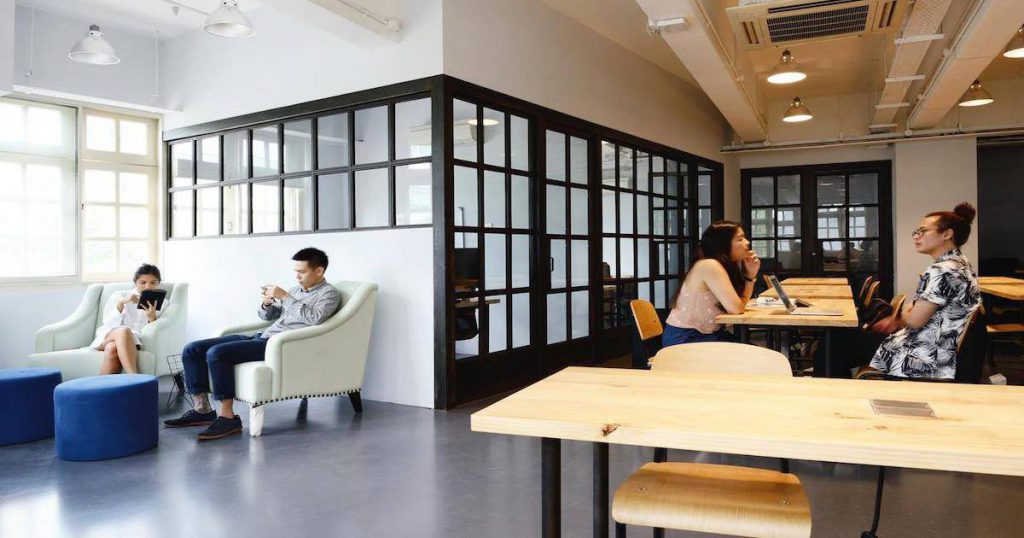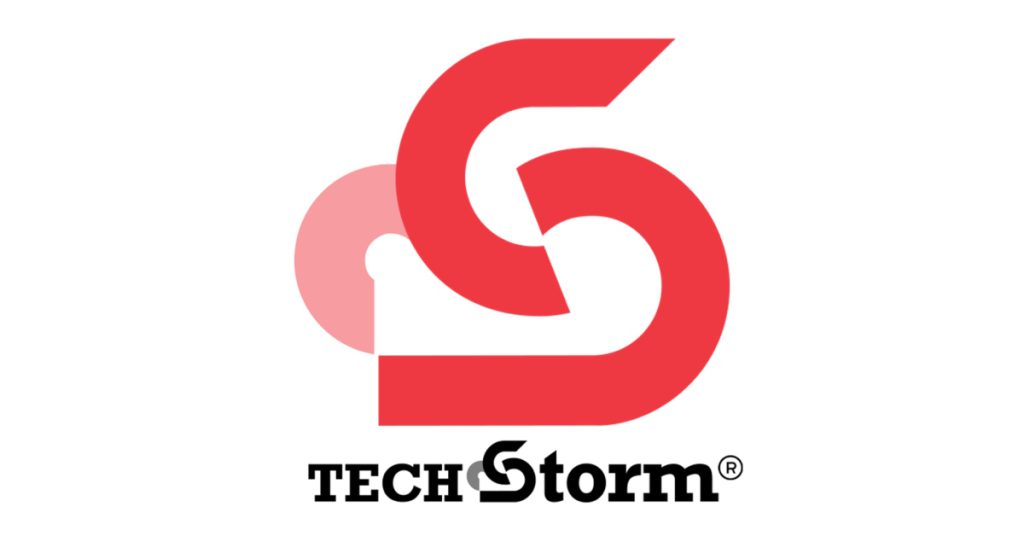Snazzy co-working spaces have gotten quite a bit of attention recently.
Co-working spaces are membership-based workspaces where diverse groups of freelancers, employees working remotely, and other independent professionals work together in a shared, communal setting. While some may not completely grasp this vastly growing concept, others believe that it’s an innovative and dynamic way to work.
Although the co-working movement has its origins among freelancers and entrepreneurs, it’s becoming increasingly relevant for a broader range of people and organisations.
In fact, the co-working space trend has seen a huge boost in recent years. According to real estate company Cushman and Wakefield, there are currently 53 co-working spaces in Singapore and almost one-third of them are situated in the Central Business District (CBD) area.
This number is set to grow though, with Spacemob launching a second space in Singapore Science Park at the end of this month.
As we see more corporate employees ditching traditional office cubicles in favour of co-working spaces, it sets me thinking if co-working spaces are really worth all the hype.
To find out, I interviewed several individuals who have set up home at different co-working spaces in Singapore, and here’s what they really feel about working in a co-working space.
1. Promotes Community And Collaboration

In the words of Porter Gale, “your network is your net worth.”
As the ecosystem of people, companies and industries is rather diverse, you can have the opportunity to build connections and network — you never know who you’ll meet and how you might be able to collaborate. In other words, the value of co-working lies in the relationships.
Members also get to feel like they are part of a community. The working culture is such that it is a norm to help each other out, and there are many opportunities to do so.
The variety of workers in the space means that co-workers have unique skill sets that they can provide to other community members. Just ask around and you can easily find someone to bounce ideas with, or maybe even share insights into each other’s businesses.
Lorenzo Petrillo, founder of Lopelab, who works at The Working Capitol, said that besides collaborations, he mostly “shares thoughts, advices and contacts” with the other tenants. For startups, the result of meeting others in a co-working space could mean sales leads, better connections for business advice, and even more connections to customers for ongoing research.
Most co-working spaces are also trying to foster better connections among tenants by helping them to interact and build a sense of community beyond regular work meetings.
“There are a lot of events regularly run for members-only – as well as some open to the public – and they range from networking sessions to yoga classes. I personally attend the “Members’ Lunch”, where once a week, different members present their company and vision, and treat other members to lunch. I also attend networking events and presentation or panel discussions of different topics relevant for my business or my personal interests,” said Lorenzo.
Jemimah Wei, a host, writer and blogger, who rents a space at The Hive, also shares that her space hosts various events for the community – from business talks and soundboards, to social networking events, and even movie screenings on the roof.
“Our location managers founded the Open Air Cinema Club, which screens movies on the roof of our office every month or so, which is great. I’d make an effort to go if I have the time, or if I’m not rushing work,” she said.
Ultimately, these events are a great way to gain insight and knowledge, meet like-minded individuals, support your community, and stay connected.
2. Open Working Environment

A more open working environment – as opposed to having walls or partitions around your office cubicle – encourages interaction among workers, making it easy to bounce ideas off one another.
However, some people – such as Elaine Lim, a freelance designer who has worked at various coworking spaces – do not appreciate the “lack of private space”. According to her, such open concepts can cause a lot of distractions. Moreover, “you do not have the power to control the noise levels in the space.”
“When I’m ‘in the zone’, I don’t like being disturbed as it disrupts my creative flow. It has become my habit now to put on my headphones (even when there’s no music) just so that people won’t interrupt me when I’m at work,” she added.
Jemimah, however, begs to differ.
“Everyone [at my space] is focused, because they are paying rent out of their own pockets. No one is there to randomly socialise or burn time because in a co-working space, time is literally money, so the environment is constantly buzzing with an intense, quiet focus,” she said.
Sharing the same sentiment as Jemimah, Lorenzo said that “distractions are everywhere, even in big companies with many people around. Even the Internet can pose as a distraction!”
3. Autonomy Is A Double-Edged Sword

Co-working spaces are normally accessible round-the-clock. People can decide whether to put in a long day when they have a deadline to meet, or they can decide to take a long break in the middle of the day to go to the gym.
However, too much autonomy can cripple productivity, and some have reported that having a community to ‘answer’ to helps them create structures, routines and enforce self-discipline. Thus, some form of structure actually enables an optimal degree of control for independent workers in the long run.
“Because you really have no one to answer to but yourself, one of the hardest parts of being self-employed is finding the motivation to get started with your day. Sometimes, having other people around helps to keep your inspiration and enthusiasm high,” said Elaine.
4. You Won’t Break The Bank

Even though the cost to rent a desk at a co-working space is substantially lower than signing a long-term lease, it can still be expensive. Forking over between $300 and $500 a month may simply be impossible, especially for entrepreneurs bootstrapping their startup or just starting out.
But co-working spaces offer plenty of package options that gives you various levels of access to the space facilities and amenities, so there’s bound to be one that suits your budget.
“A no-frills package usually gives you access to free unlimited Wi-Fi and copiers and scanners. Because it is a shared environment, the costs will definitely be far less than a private office,” said Elaine.
Keeping rent and other overheads to a minimum is a must for any freelancer or small business, so this can be a great option over renting an entire office.
Depending on the space, you’ll be be able to find places that offer daily rates, or even month-long contracts so you don’t have to be committed for too long.
That’s the beauty of the co-working space — it’s the perfect breeding ground for start-ups!
“I have chosen the “Workspot – Unlimited Plan” at The Working Capitol and it’s about S$450 per month per person. Now that the team has grown, I’m planning to move to a bigger workspace that’s suitable for five people,” shared Lorenzo.
Since you are not bounded by long leases, you will maintain freedom and flexibility to scale up to a bigger space whenever you expand your team.
Additionally, most co-working spaces offer a one-day free trial for you to get a “feel” of the place before signing any contract.
Traditional Offices, Take Notes!
According to the researchers at Harvard Business Review, employees who work at co-working spaces show a higher tendency to ‘thrive’, approaching an average of 6 on a 7-point scale. This is at least a point higher than the average for employees who work in regular offices.
The research also suggests that the combination of a well-designed work environment and a well-curated work experience also plays a part in this difference.
But the factor that plays the most important role is the substantial autonomy that those in co-working spaces get.
This, however, does not mean that traditional offices should cease to exist and immediately up and move to a co-working space.
Traditional companies who want to adopt the co-working model need to give their people the space and support to be their best authentic selves. As a result, employees will feel more committed to your organisation, and are more likely to bring their best ideas to the office each day.
Additionally, it’s probably time to rethink the design of their office space so that they can become more open and interactive.
“All in all, the future of work should not be dictated by space or place, but by the individual and the tasks that he or she has to deliver,” said Regus CEO Mark Dixon in an interview with Fast Company.
“Many employees are now measured by output and productivity, and not just 40 hours spent sitting at a desk. Workers and the companies for which they work are increasingly realising that they need to provide and utilise a wide range of workplaces to accommodate an increasingly diverse workforce with very different expectations of what work is, and where and when it should happen.”
Featured Image Credit: The Hive Singapore










